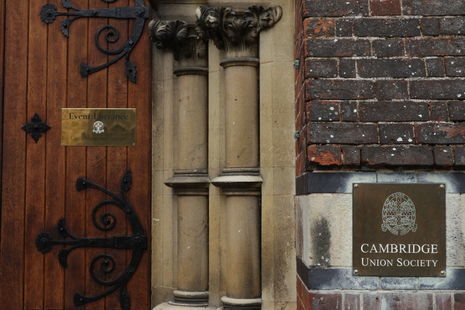Be mindful of non-students in your societies
Alex Rutter argues that he joined student societies to make memories, not to navigate power struggles

Of the many things our university likes to boast about, I don’t think many of us will object to their promotion of a rich student society ecosystem. It’s an opportunity to make Cambridge into more than just a point on a CV, and to take away some incredible memories.
However, almost every society inevitably comes with its share of drama and arguments. Not just reserved for the political clubs, there will always be moments where conflict starts boiling over to the extent that it ends up tarnishing our experience as members – most of the time related to elections and positions. I won’t document the details for me that led up to my writing these words of caution, not least because during the process the threat of legal action was tossed around, but it was owed to a non-student in a certain position of power in one of my societies.
“It’s an opportunity to make Cambridge into more than just a point on a CV, and to take away some incredible memories”
Non-student, of course, doesn’t necessarily mean not affiliated with Cambridge. It’s natural that many of the professors and lecturers here see the thriving student societies and want to be involved. Equally ‘non-student’ could simply mean a nice addition of a bit of town to our gown. In either case there’s a general (though certainly not universal) rule that a non-student will be older, more experienced, and thus more authoritative than us who have only just reached adulthood. And therein lies the beginning of the problem.
Of course non-students can be excellent assets and friends. Senior treasurers, for example, definitely provide a much needed stability to funds, and beyond that they can provide a nice continuity to the rotating membership of students. Some of the most ancient societies – naturally the Cambridge Union is the first that comes to mind – have so much historic value in and of themselves that they must have protection, like Senior Treasurers, from the many pitfalls that can sink even the strongest student society. This article certainly isn’t a call for clubs to begin turfing out these non-students whose longer membership can help their societies to thrive.
“Asserting your rights as a student can make you feel foolish”
It’s precisely this longer membership, however, that gives non-students a risky inherent degree of power over students. Despite being in theory and principle student societies, it’s hard to object to the argument “this is how things have always been, who are you to overturn how the traditions of the society?” When you’ve been around so long, it’s inevitable that you gain expectations about “the proper manner of things” in a club which doesn’t mesh well with forward-thinking students who want to see what they improve in a society. The expertise non-students have can make them appear unstoppable juggernauts to us, even if they don’t intend to be so, and asserting your rights as a student can make you feel foolish.
Even if you’re still resolutely determined to have your way, that’s no guarantee that it will happen. Constitutions in a society can also serve as an easy enabler of throwing up roadblocks against change. Attempting to implement changes as students can be dismissed by the objection that it’s ‘unconstitutional’ from a long-time non-student who has had the time to find every detail and trick these papers offer them. With such a short stay here and a need to also focus on your academics, putting in the time to get past the hurdles is a very unattractive option. Time is always never on our side.
And all this is not even mentioning what happens if they ever begin to ask for remuneration for their time. I’m told that the sports centre has had so much of this with instructors that they’re beginning to require coaches to sign an agreement saying that they won’t take this course of action. I can only imagine the conflicts that have arisen over the years about such a sensitive topic.
Most of us only have three or four years to experience Cambridge. It’s little wonder that many societies find the risks of non-students members disrupting this short time too great to allow them to join. If your society does continue to be open to non-students, it’s still probable they’ll be nothing but assets. Nevertheless, a healthy dose of vigilance doesn’t hurt.
 News / Colleges charge different rents for the same Castle Street accommodation2 March 2026
News / Colleges charge different rents for the same Castle Street accommodation2 March 2026 News / News in Brief: waterworks, wine woes, and workplace wins 1 March 2026
News / News in Brief: waterworks, wine woes, and workplace wins 1 March 2026 News / Climate activists protest for ‘ethical careers policy’1 March 2026
News / Climate activists protest for ‘ethical careers policy’1 March 2026 News / Angela Merkel among Cambridge honorary degree nominees27 February 2026
News / Angela Merkel among Cambridge honorary degree nominees27 February 2026 News / Private school teacher who lied about Cambridge degree barred from teaching27 February 2026
News / Private school teacher who lied about Cambridge degree barred from teaching27 February 2026









